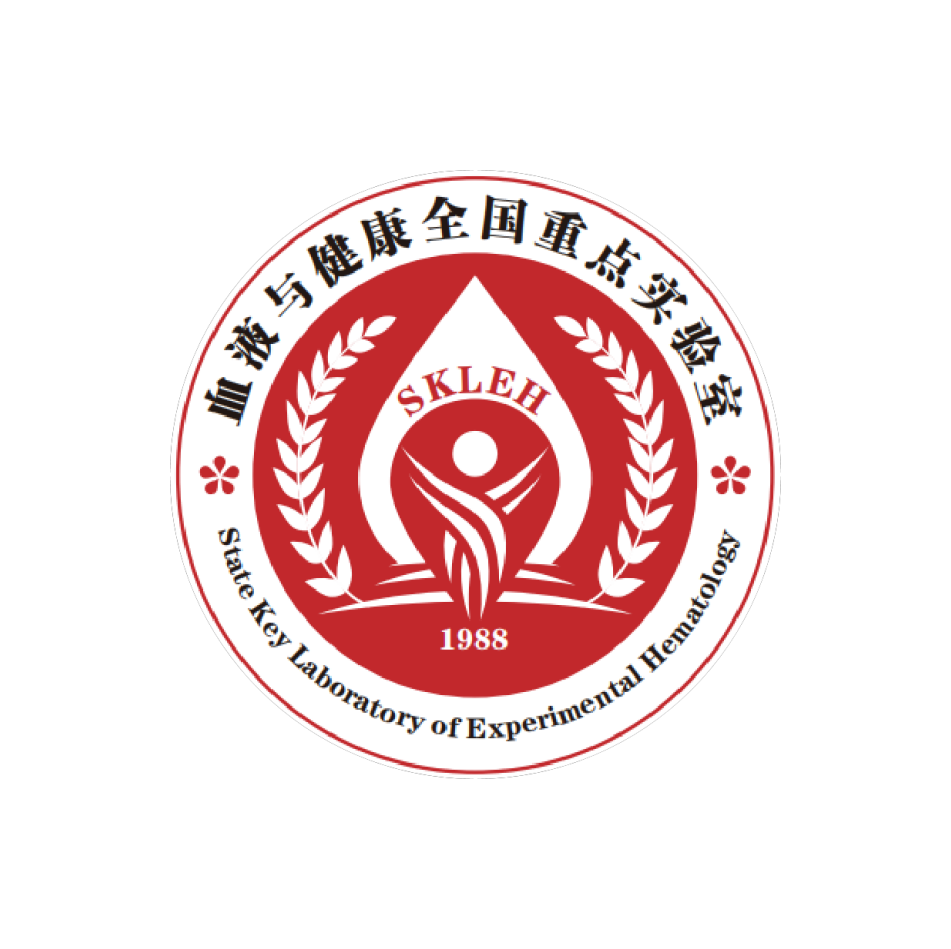
Prof. Cheng has performed seminal studies on the molecular basis of hematopoietic stem and progenitor cells (HSPC) in cell cycle control (via CDK inhibitors), radioprotection (via Puma), bystander effects (via ROS), and leukemic transformation (via SETD2). These studies have yielded therapeutic insights, some of which have been applied in clinical practice. He has successfully initiated and led the Atlas of Blood Cells (ABC) program that has significantly contributed and shaped the field of single cell transcriptomics of both murine and human blood cells in homeostatic as well as pathological conditions. These studies have profound implications for hematopoietic stem cell transplantation and regenerative medicine. Prof. Cheng has published more than 310 research articles, invited reviews and book chapters in Science, Nature, Nature Medicine, Nature Genetics, Nature Cell Biology, Cell Stem Cell, Blood and many other leading journals, with H-factor 71. He is a holder of 38 granted patents.
He has established a comprehensive translational platform for cell and gene therapies in China, by which many cellular and gene therapy INDs have been granted. He is also led and expanded the training of hematologists and stem cell biologists by founding the Department of Stem Cells & Regenerative Medicine and its graduate program at Peking Union Medical College. He is the founding Chief Editor of Blood Science (the first English hematology journal in China), and the founding President of the Chinese Association for Blood Sciences (CABS).
He received several prestigious awards including the Junior Scholar Award from American Society of Hematology, the Outstanding Scholar Award from National Natural Science Foundation of China, the Chang-Jiang Scholar Award from Ministry of Education of China, the Scholar Award from Leukemia and Lymphoma Society of USA, the Distinguished Professorship Award from China Medical Board (CMB), the Wu Jieping - Paul Janssen Medical & Pharmaceutical Award, and the Saint-Antoine-EBMT Achievement Award. He has served as editorial board member for Blood, Leukemia, Stem Cells and others. He was twice elected as a board director in ISEH (2010 and 2017).
MS, Internal Medicine, Second Military Medical University, Shanghai, China, 1986-1989
MB, Second Military Medical University, Shanghai, China, 1981-1986
Professor of Medicine, Institute of Hematology and Blood Diseases Hospital, Chinese Academy of Medical Sciences and Peking Union Medical College, 2007-
President, Institute of Hematology and Blood Diseases Hospital, Chinese Academy of Medical Sciences, 2019-
Dean, School of Basic Medicine, Peking Union Medical College, 2021-
Director of Stem Cell Biology, Cancer Institute, University of Pittsburgh, Pittsburgh PA, United States, 2001-2013
Assistant, and then Associate, full Professor of Radiation Oncology (tenured in 2008), School of Medicine, University of Pittsburgh, Pittsburgh PA, United States, 2002-2013
Assistant Professor of Medicine, Harvard Medical School, Harvard University, Boston MA, United States, 2001-2002
PRINCIPAL HONORS, AWARDS:
2024 Wu Jieping - Paul Janssen Medical & Pharmaceutical Award
2022 Elected member, Chinese Academy of Medical Sciences
2020 China State Natural Science Award
2009 The Chinese Medical Board Distinguished Professorship Award
2008 Leukemia and Lymphoma Society Scholar Award (USA)
2003 American Society of Hematology Junior Faculty Award (USA)
MAJOR NATIONAL LEADERSHIP POSITIONS, SOCIETIES AND BOARDS:
2022-2026 Vice President, Chinese Association for Physiological Sciences
2022- President, Chinese Hospital Association, Hematology Branch
2016- Vice President, Chinese Society for Experimental Hematology (CSEH)
2015-2023 Founding President, Chinese Association for Blood Sciences (CABS)
2017-2020 Board of Directors, International Society of Experimental Hematology (ISEH)
SELECTED PUBLICATIONS:
1. Cheng T, et al.. Hematopoietic stem cell quiescence in vivo is maintained by p21. Science 2000; 287: 1804-1808.
2. Cheng T, et al.. Stem cell repopulation efficiency but not pool size is governed by p27(kip1). Nat Med. 2000; 6 1236-40.
3. Yuan Y, Shen H, Franklin DS, Scadden DT and Cheng T*. In vivo Self-renewing divisions of hematopoietic stem cells are increased in the absence of the early G1-phase inhibitor, p18INK4c. Nat Cell Biol. 2004 May; 6(5): 436-42.
4. Yu H, et al., Cheng T*. Hematopoietic stem cell exhaustion impacted by p18 and p21 in opposite manners. Blood 2006 Feb 1;107(3):1200-6.
5. Zheng ZF, et al., Cheng T*, Cheng H*. Uncovering the emergence of HSCs in the human fetal bone marrow by single cell RNA-seq analysis. Cell Stem Cell. 2022. 29(11): p. 1562-1579 e7
6. Zhang Y, et al., Cheng T*. Temporal molecular program of human hematopoietic stem and progenitor cells after birth. Dev Cell. 2022 Dec 6:S1534-5807(22)00813-9.
7. Dong F, et al., Cheng T*. Differentiation of transplanted haematopoietic stem cells tracked by single-cell transcriptomic analysis. Nat Cell Biol. 2020 Jun;22(6):630-639.
8. Huo Y, et al., Cheng T*. Single-cell dissection of human hematopoietic reconstitution after allogeneic hematopoietic stem cell transplantation. Sci Immunol. 2023 Mar 17;8(81):eabn6429.
9. Wang H, et al., Cheng T*. Multi-omics blood atlas reveals unique features of immune and platelet responses to SARS-CoV-2 Omicron breakthrough infection. Immunity. 2023 May 16:S1074-7613(23)00224-8.
10. Ren X, et al., Cheng T*, et al., Zhang Z*. COVID-19 immune features revealed by a large-scale single-cell transcriptome atlas. Cell. 2021 Apr 1;184(7):1895-1913.e19.
11. Cheng H, et al., Cheng T*. Leukemic marrow infiltration reveals a novel role for Egr3 as a potent inhibitor of normal hematopoietic stem cell proliferation. Blood. 2015 Sep 10;126(11):1302-13.
12. Zhu X, et al., Cheng T*, Wang QF*. Identification of functional cooperative mutations of SETD2 in human acute leukemia. Nat Genet. 2014 Mar;46(3):287-93.
13. Wang Y, et al., Cheng T*. Targeting of apoptosis gene loci by reprogramming factors leads to selective eradication of leukemia cells. Nat Commun. 2019 Dec 6;10(1):5594.
14. Zhang Y, et al., Cheng T*. Elucidating minimal residual disease of paediatric B-cell acute lymphoblastic leukaemia by single-cell analysis. Nat Cell Biol. 2022 Feb;24(2):242-252.
15. Li Y, et al., Cheng T*, Shi J*, Du Y*, Gao Y*. Expansion of human megakaryocyte-biased hematopoietic stem cells by biomimetic Microniche. Nat Commun. 2023 Apr 18; 14(1):2207.
16. Hu LP, et al., Cheng T*. Radiation-induced bystander effects impair transplanted human hematopoietic stem cells via oxidative DNA damage. Blood. 2021 Jun 17;137(24):3339-3350.
17. Shen J, et al., Cheng T*. Single-cell transcriptome of early hematopoiesis guides arterial endothelial-enhanced functional T cell generation from human pluripotent stem cells. Science Advances. 2021 Sep 3;7(36):eabi9787.
18. Shen J, et al., Cheng T*. Activating innate immune responses repolarizes hPSC-derived CAR macrophages to improve anti-tumor activity. Cell Stem Cell. 2024 Jul 5;31(7):1003-1019.e9.
19. Yuan W, Sipp D, Wang ZZ, Deng H, Pei D, Zhou Q, Cheng T*. Stem Cell Science on the Rise in China. Cell Stem Cell. 2012. Jan;10(1):12-15.
20. Qi Ji et a, Cheng T*. Trends, opportunities, and challenges of clinical trials for haematological diseases in China. Lancet Haematol. 2024 Jun;11(6):e404-e405







